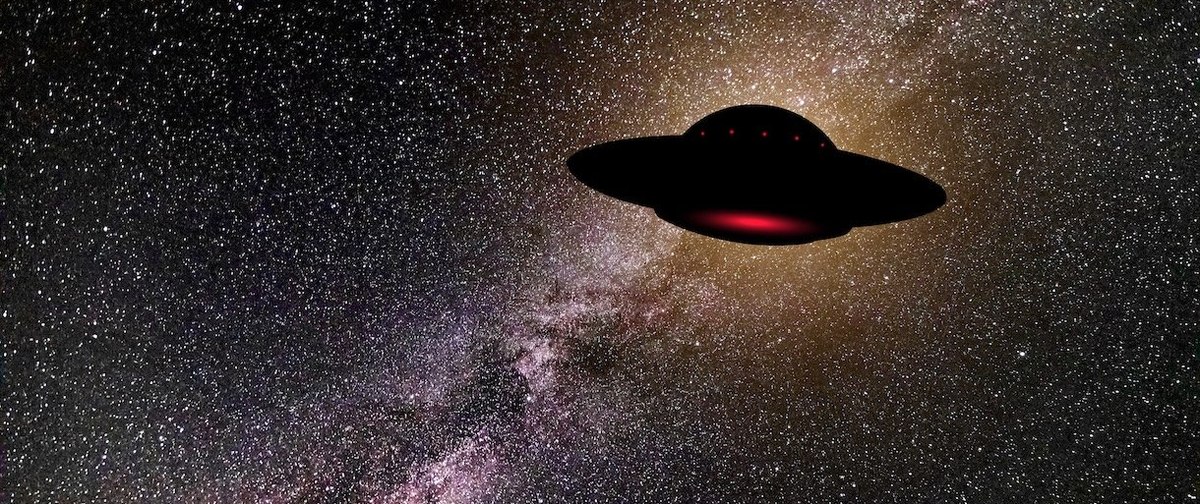New YouGov polling finds that most Americans believe aliens exist, and many think that aliens have paid a visit to Earth in recent years. Americans are more likely to believe alien encounters would have a negative effect on human civilization than to think it would have a positive effect, and many believe that aliens would bring new diseases and unintentional harm or outright hostility to people if we were to encounter them.
56% of Americans believe aliens definitely or probably exist, more than the shares of Americans who believe Bigfoot (28%), the Yeti (23%), the Loch Ness monster (22%), or Chupacabra (16%) definitely or probably exist.
Democrats (61%) and Independents (59%) are more likely than Republicans (46%) to say aliens definitely or probably exist — which isn't the case for the unverified life forms of Bigfoot and the Yeti
30% of Americans believe UFOs, or unidentified flying objects, are probably alien ships or life forms; 45% believe they have some other explanation. Democrats are more likely than Republicans to believe UFOs are probably alien in origin (34% vs. 26%).
In September 2024, a smaller share (35%) of Americans said that UFOs probably had some natural scientific explanation.
Nearly half (47%) of Americans believe aliens have definitely or probably visited Earth at some point. Democrats are more likely than Republicans to say aliens have visited Earth (51% vs. 41%).
Americans are almost evenly divided on whether aliens have visited Earth in recent years: 42% say they definitely or probably have and 41% say they definitely or probably have not. Democrats are more likely than Republicans to believe aliens have visited Earth in recent years (45% vs. 39%).
16% of Americans think we will definitely or probably make contact with alien life within the next 10 years. 29% think we will make contact within the next 50 years, 42% think we will do so in the next 100 years, and 46% think we will make contact with alien life in the next 200 years.
Americans who believe aliens have definitely or probably already already visited Earth are more likely than people who don’t think so to believe in future encounters. Among people who think aliens have visited, 31% think we’ll make contact in the next 10 years, 53% think we’ll make contact in the next 50 years, 71% think we’ll make contact in the next 100 years, and 76% think they’ll make contact within the next 200 years. Among Americans who don’t think aliens have ever visited, only 2% think we’ll make contact in the next 10 years. 5% think we will make contact in the next 50 years, 16% think we will make contact in the next 100 years, and 20% think we will make contact in the next 200 years.
In September 2024, similar shares of Americans said they believed we would definitely or probably make contact with alien life within 10 years (17%), 50 years (32%), 100 years (41%), and 200 years (44%).
If aliens visited Earth, would it have a positive or a negative effect on human civilization? Americans are about twice as likely to think the effect would be negative as to say it would be positive (29% vs. 14%). 25% think it would be neither positive nor negative. Republicans are more likely than Democrats to think the effect would be negative (37% vs. 26%). Two-thirds (66%) of Independents either think an alien visit would be neither positive nor negative (28%) or are not sure (39%).
Americans who think aliens have not visited Earth are about twice as likely as those who think aliens have visited to say that if aliens did visit, it would have a negative effect (43% vs. 22%).
28% of Americans believe that if we encountered aliens, it would make the world’s countries and people more united with more cooperation. A smaller share say that it would make the world more divided with more conflict (22%) while 20% say things would not be significantly different either way. Democrats are more likely than Republicans to say alien encounters would make the world more united (36% vs. 25%).
Majorities of Americans say it’s very or somewhat likely that if we encountered aliens, they would be far more technologically advanced than humans (74%), they would want to stay hidden from humans (66%), and they would introduce new diseases that can infect humans (55%). Half (50%) think it’s likely they would be able to communicate with humans, 43% think it’s likely they would unintentionally harm or kill people, and 43% think it’s likely they would come in peace. Only 29% think they would have a sense of humor while 28% say that's not very or at all likely.
Three-quarters (73%) of Americans — including 75% of Democrats and 72% of Republicans — think that if the U.S. government had evidence of UFOs, it would hide it from the public. Only 13% of Americans think the government would tell the public.
One in five Americans (21%) have seen something they thought was a UFO. Americans who live in a rural area are more likely than those who live in other types of areas to say they have seen what they thought was a UFO (28% vs. 19%).
Among Americans who say they have seen a UFO, 28% think it was more likely to be alien in nature and 48% think it’s more likely that it had some other explanation.
Related:
- A growing share of Americans believe aliens are responsible for UFOs
- Is something out there? Americans aren't sure, but most say the government isn’t open about UFOs
- Most Americans believe the government is hiding info about UFOs
See the results for this YouGov survey
— Carl Bialik and Taylor Orth contributed to this article
Methodology: This article includes results from an online survey conducted on November 4 - 9, 2025 among 1,114 U.S. adult citizens. Respondents were selected from YouGov’s opt-in panel to be representative of adult U.S. citizens. The sample was weighted according to gender, age, race, education, 2024 presidential vote, 2020 election turnout and presidential vote, baseline party identification, and current voter registration status. 2024 presidential vote, at time of weighting, was estimated to be 48% Harris and 50% Trump. Demographic weighting targets come from the 2019 American Community Survey. Baseline party identification is the respondent’s most recent answer given around November 8, 2024, and is weighted to the estimated distribution at that time (31% Democratic, 32% Republican). The margin of error for the overall sample is approximately 4 percentage points.
Image: Getty
What do you really think about President Trump, American politics in general, and everything else? Share your reality, join the YouGov panel, and get paid to share your thoughts. Sign up here.












